If you are interested in how to start poultry farming, you can take confidence that it is possible to turn it into a thriving business, even without lots of money and much experience.
But having said that, poultry farming can also appear easy to accomplish, but it’s the business side of things that can be an entirely different matter. So instead of being just a chicken farmer, you need to be an entrepreneur too.
You need to realize that chicken farming isn’t really just buying chickens and hoping they will hatch eggs or produce meat. Did you know that with poultry farming, there are actually two methods; one is the laying part; the business which produces eggs. The other category is called broiler farming; where chickens are bred for meat purposes.
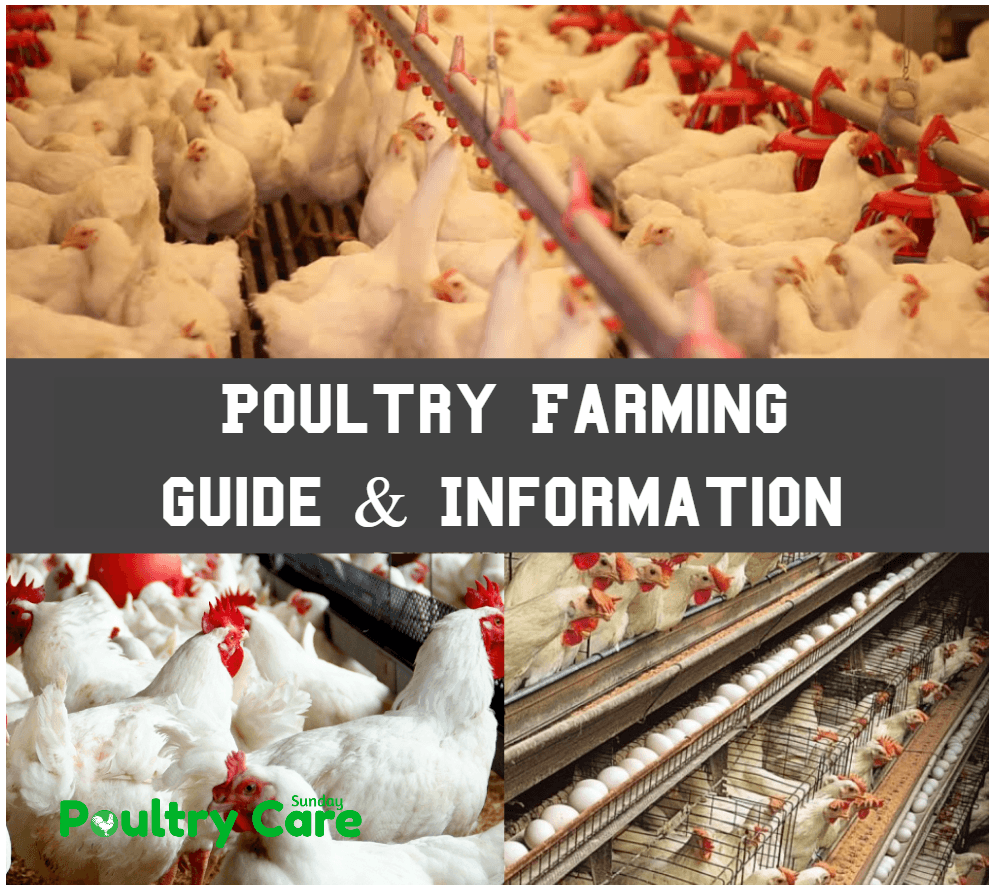
What Benefits Do You Get Out of Poultry Farming?
There are numerous benefits when it comes to poultry farming and it is because of this that a lot of farmers choose to invest their money in it. Generally, people will start up a poultry business for the main purpose of producing eggs – and selling those eggs – they hope to generate a good income from the eggs.
However, I discuss the important benefits of poultry farming as listed below:
- . And people across the economic spectrum
Methods of Poultry Farming
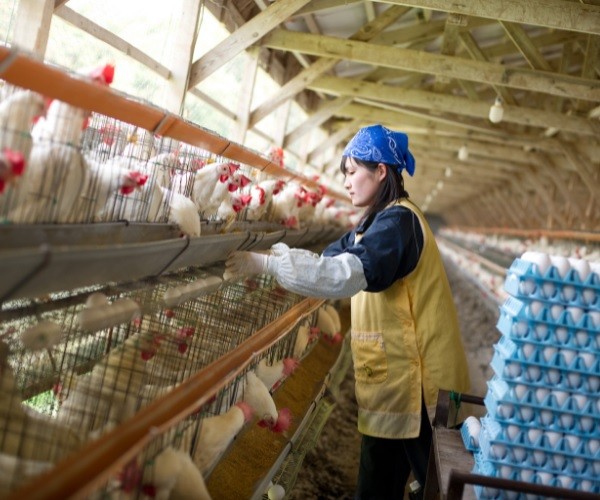
According to researchers and scientists, the ‘intensive poultry farming method’ produced 74% of the world’s poultry meat and 68% of eggs. Another alternative method of intensive poultry farming is ‘Free-range farming’ using lower stocking densities.
Between Intensive and Free-range poultry farming methods, there are some basic differences:
The intensive method is very proficient, it can save your land, feed, worker and other resources and also increases production. In this system farmers fully controlled the poultry farming environment.
So, it will possible to continue production in whole seasons in any environment. On the other hand, Some people say the intensive method has health risks, abuses the animals and is harmful to the environment.
The free-range method requires a large space for raising the birds but the same production as the intensive method.
In both methods, Poultry producers routinely have to use nationally approved medications, such as antibiotics to keep the poultry birds free from diseases.
Different Methods of Layer Poultry Farming
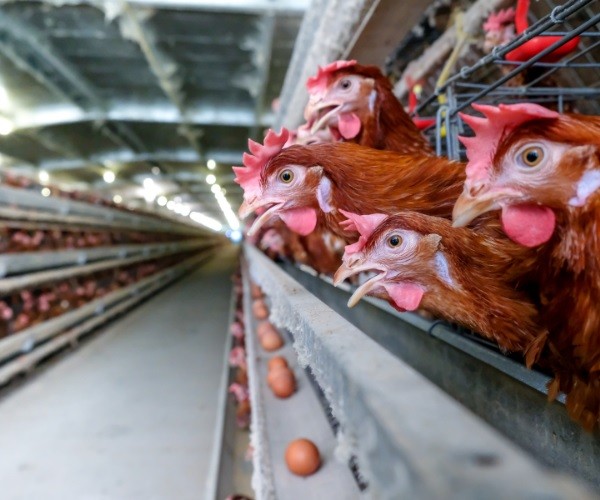
Free Range Poultry Farming
In this method, the chickens can roam around and forage freely for a good part of the day. At night though, the chickens are housed inside their housing to keep them free from predators and severe weather conditions.
If you want to do free-range poultry farming, you need the land, excellent drainage and ventilation systems in place and enough protection from excessive weather conditions and predators.
Free-range poultry farming comprises less feeding than caged birds. Free-ranging is an excellent method of farming for chickens, but the birds can be the target of predators and more diseases.
Organic Poultry Farming
This is a type of free-range method. There is one difference though. With free-ranging, large numbers of birds forage together but with the organic method, it is just a particular species of bird in a small group that is raised.
There are some restrictions with organic poultry farming systems because farmers use things like yolk colorants which are synthetic. They use water and feed additives too.
Inorganic poultry farming, the manufacturer doesn’t really have more than 1000 chickens per hectare; with a maximum of 2000 being housed together.
Yarding Poultry Farming
In this method of farming, both cows and chickens are raised together in a fenced-off area. Both the cattle and birds can move around freely inside the fence. This method is a popular way of farming amongst small-scale farmers.
Battery Cage Poultry Farming
This is a common method, used all over the world. Small cages made from steel are used, accommodating around 3-8 laying hens. There is wire mesh at the bottom so the poultry droppings dropdown. There is a conveyor belt under the cages which when the eggs drop into it, are carried off.
The hens get their food right in front of them through a pipe and water through a kind of nipple system that drips the water through to the birds. These steel cages are in rows and even built on top of each other to house thousands of chickens.
Some benefits of battery poultry farming are that thousands of birds are cared for at the same time, eggs are collected easily by means of the conveyor system and the eggs are cleaner and free of droppings, etc. Less feed is required to feed the hens and the birds don’t develop as many parasites. Labor costs are kept to a minimum as well.
Unfortunately, though, this method is considered inhumane by many animal welfare groups because the chickens live ‘unnaturally’ and are unable to be free. Because of this ‘unnatural’ behavior, it can certainly affect their egg production.
Some of the top laying hens to keep and more about them:
- Hybrid
- Rhode Island Red
- Leghorn
- Sussex
- Plymouth Rock
- Ancona
- Barnevelder
- Hamburg
- Marans
- Buff Orpington
Proper Housing For Layer Poultry Farming
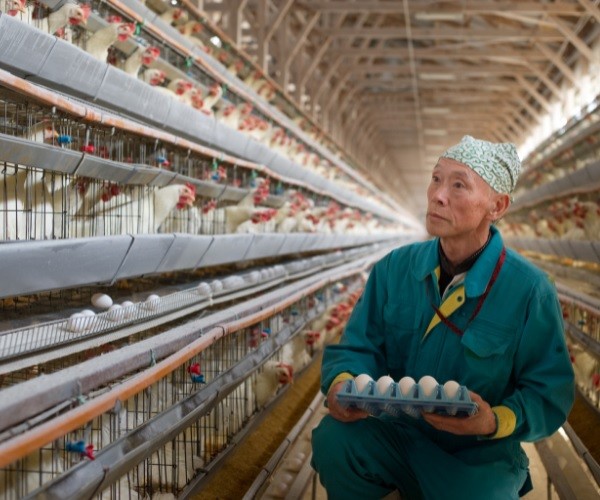
Good housing for layer hens will mean they are kept safe, they grow well and they are productive. But to produce well, means special housing, management and care. The right poultry house protects from predators, needs to be free of drafts and be dry.
The rocket temperatures and ventilation systems, therefore, need to be in place because the birds are extremely sensitive when it comes to temperature, and chicks can easily die when temperatures suddenly change.
Ventilation knees to accommodate both hot and cold water. Lighting is also of extreme importance because it determines the number of eggs they will lay, and most people want the maximum results.
Layer Poultry Feeding
Most of us love a delicious egg to eat, sometimes on a daily basis. But to make an egg full of nutritious requires work from the farmer, and why sometimes egg farmers will even work with specialists in poultry to try to make sure chickens get all their proteins, grains, vitamins, fats and minerals.
That means plenty of excellent corn, wheat, rye, barley, and oats. Those things provide energy and are rich in all the necessary fibers, vitamins, minerals and proteins. Some nutritious foods will even have things like dried eggshells and bone meal for instance which are high in protein, calcium as well as phosphorous.
A hen’s diet is so important that what they eat can even determine what color the yolk will be. If hens eat only a wheat-based diet, pale yellow yolks are what you might see whist the corn-based diets provide darker yolks.

Different Methods of Broiler Poultry Farming
Indoor Raising
In indoor raising methods, the broilers chickens are housed in a house, with litter made from wood shaving or peanut shells on the floors. Houses that the chickens are raised in are usually called a grow out.
Already from around 5-6 weeks, the chickens are ready to be slaughtered for eating. Mechanical systems will feed and water these birds and ventilation with excellent heating and cooling facilities are absolutely essential.
The grow-out has to be clean and dry and at around 400 ft. in length and around 40 feet wide. Such a house would accommodate around 20,000 chickens – each bird requiring around1½ sq. ft. of space.
Organic Farming
This method is just about the same as farming with free-ranging birds. There is a difference though. In organic farming, the birds don’t have access to the in-water or in-food additives and medications, etc.
Organic farming methods are more suitable for birds that reach their slaughter weight slower, at about 12-weeks of age.
Free-Range Farming
Broilers are kept very much the same as what the layers are kept, with the ability to scratch around, foraging and pecking for food and also get outdoor exercise. Free-range birds are ready for slaughter by the time they are around 8-weeks old.
Top Broiler Breeds
Remember too, that a broiler chicken does not mean just one kind of chicken. You get different types of chicken breeds. Look at these types because it is important that you know what you are getting into when you purchase them, what their husbandry needs are, at what age they will need to be slaughtered, and which breeds are not suitable for backyard keeping, etc.
Cornish-Cross Rocks: Fast developing birds, ready for slaughtering before their 8thweek. Sold as day-old chicks, the males weigh about 5 pounds and females 2 pounds. They are stocky birds but often have weak legs. Need proper care.
Cornish Game or Rock Cornish: Smaller than your standard type broiler but with fewer health problems. Produces delicate gourmet meat, coming in different colors. Hardy birds as well.
Cornish: This broiler is much like the Rock Cornish. It’s a good choice for starting a chicken business because this bird has not been weakened genetically. It matures slower and fortunately does not have the weaker legs like the commercial Rocks do. Does require care though to see that it does not put on too much weight.
Heritage Dual Purpose: This breed is the choice usually of organic farmers, being the ‘original ‘type stock. It’s a hard bird, a good egg layer and beautiful. The bird does not present with a lot of health problems either like the commercial broilers. Here you can choose from White Rocks, Wyandottes, Turken and others.
Proper Housing For Broiler Poultry Farming
Broilers gain their maturity quickly and in order to sustain their growth and reach maximum production, they need an excellent housing environment. The construction is all-important.
Apart from the right construction of broiler houses, heating needs to be exactly right as well and ventilation for hot and cold weather. The above are all essential requirements because the birds need protection from other animals that will harm them and against adverse weather.
Broiler poultry conditions are different from layer hen conditions and it is important to note that broilers need more food and water, and more lighting.
Broiler Poultry Feeding
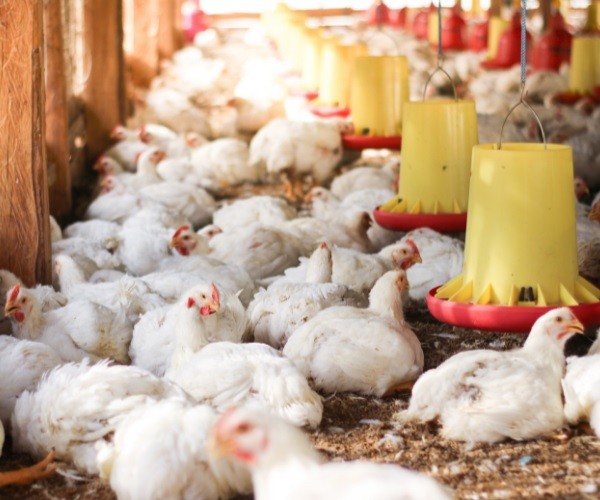
Nutrition for your broilers is extremely important. You will notice that the performance of the chickens will depend on their nutritional intake.
Sometimes farmers make the mistake of putting less focus on what their rollers eat, but each class and different breeds have been (mentioned above), required their own specific nutritional needs.
Going over or being under their nutritional needs will certainly affect how the chickens perform ad knowing the nutritional needs of broiler chickens is imperative.
Analyzing their feeding habits and formula will help farmers to work more efficiently within tier nutritional needs.
Care & Management
For layer poultry farming …
Layer poultry farming entails raising chickens specifically for egg production. These types of hens are raised as egg layers right from day one, and when they are around 18-19 weeks old, they are laying eggs continuously until they are about 72-78 weeks of age.
There are different types of egg-laying breeds found throughout the world. You will need to choose the right breed of layers. Layer hens also need to be vaccinated, to keep them free from diseases while they are laying.
Growing chicks need to be well cared for too, they need special care until they are at least 5 weeks old, needing high-quality feeds to increase their body weight and health.
Taking good care of the birds and managing them properly ensures that your production will be good and the profits high.
For broiler poultry farming …
Farming with broiler chickens is a pretty lucrative business, and they are a special breed of poultry, bred specifically for the production of their meat.
You get many breeds of broilers and a farmer has to follow some important steps when it comes to selecting the right broilers for his business, like the weight of the chickens as well as age.
Farmers also need to choose high-productive breeds for their poultry business. The broilers need to be housed appropriately as well, with their home preferably facing in an eastern-western direction with excellent ventilation.
Their house needs to be clean throughout before introducing the chickens there – you need to ensure the heating systems or temperatures are exactly right for the health of the chickens.
High-quality care is needed for the chickens. Remember that broilers take in more water than the layer chickens do.
Things To Consider Before Starting Your Own Poultry Farm
There are some important things you need to consider before you start your poultry farming business:
- product, technology, risk factors,
Guidelines To Keep Your Poultry Healthy and Happy
Here are some more simple guidelines to keep your poultry healthy and happy – you can’t afford to take shortcuts.
- area you live in, etc. Remember that not all chickens are suitable for backyard conditions.
- Clean and fresh water in the right containers is a non-negotiable consideration. You can buy good containers at your local farm co-op, ensuring that the water is not so deep that a chicken could fall in and drown. Water also needs to be changed every day to avoid disease.
- Poultry needs to be safe: They might be able to wander around during the day, but at night, they need a safe place to sleep, protected from predators. Bushes need to be cleared away and perches provided, etc. And that means when you let them out in the morning, they are checked to see that all is OK and they are healthy.
- There needs to be a regular supply of food. Chicks especially need extra sources of food at least till they are able to forage on their own. Chickens love foraging in the
- must be clean and hygienic because allowing manure to build up and stand around can certainly lead to disease. If there are any dead birds, these must be dealt with immediately, removed and buried.
- Hatching and breeding. If you want to produce chicks, then you will need say one rooster for around 5-6 hens. You need to remove other adult male birds when they mature to prevent fighting and noise.
- Remember to remove eggs every day if you are looking for egg-laying birds. If you leave the eggs behind; the hens tend to become broody and want to hatch the eggs. Chicks need to be kept in a pen along with the hen at least for 2-3 weeks after being hatched.
- Manage parasites on your poultry, because if it’s something like red mites, for example, these can even prevent hens from laying eggs or even sitting on eggs because of the irritation. There are insecticidal powders that are registered to be used for poultry.
- Prevent diseases by vaccinating –there are some viruses that are killer diseases and can literally wipe out your poultry flock in a flash. That means checking on your chickens every day to see that they are in tip-top
Conclusion
Let’s face it, the motive behind starting any business is to make a profit, to be a success. Many poultry farmers don’t want to take the time to learn why some chicken farmers have and continue to fail. It can be hugely profitable, but you need to know that if you do things ‘cheep-cheep’ and insist on taking shortcuts, you stand to lose.
Don’t be chicken, just do it properly.
DON’T MISS
Last Updated on January 14, 2025 by Pauline G. Carter

